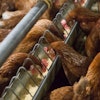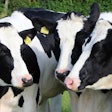
Leading animal health companies are already selling vaccines designed to combat the global highly pathogenic avian influenza (HPAI) crisis. They stand ready to address the U.S. market if the need arises.
In April 2023, WATT PoultryUSA surveyed leading pharmaceutical companies manufacturing animal health vaccines about their current work on HPAI. These companies were: Boehringer Ingelheim, Ceva, Elanco Animal Health Inc., Merck Animal Health and Zoetis Inc.
HPAI, in 2023, is a global issue. In the U.S., Gary Baxter, vice president of U.S. poultry sales and marketing at Ceva Animal Health, said this outbreak is different than the past, 2014-15 experience in the U.S., in that wild birds are primarily spreading the H5N1 disease.
“Given the prevalence of the disease in wild bird populations, the industry faces new challenges to the effectiveness of stamp-out strategies to contain HPAI,” Baxter said.
Vaccination in the U.S.
In the U.S. vaccines need to be approved by the U.S. Department of Agriculture (USDA). The USDA is reportedly developing its own vaccines, too. A vaccine rollout would be outlined by the USDA and individual state veterinarians would drive how quickly results would be seen in a region or bird segment.
Baxter said vaccination can help reduce clinical outbreaks, mortality and overall economic losses. Vaccines can also reduce viral shedding.
A vaccine strategy, he said, would be dependent on how widespread and aggressively the virus is affecting commercial birds. A real life strategy would likely be a regionalized or compartmentalized vaccination of high-risk populations or an emergency vaccination done in response to a severe outbreak to prevent further spread. In the past, the USDA ordered a precautionary HPAI vaccine bank, too.
Countries that are vaccinating successfully overseas, Baxter said, are following a differentiating infected from vaccinated animals (DIVA) surveillance strategy. DIVA surveillance helps determine if HPAI is still circulating.
“Similar surveillance strategies have been employed for years for other catastrophic poultry diseases, like Newcastle disease, for example,” Baxter said.
Mohamad Morsey, executive director of poultry research and development at Merck Animal Health, said his company strongly believes that vaccination, along with a DIVA strategy, can significantly reduce the challenges raised by avian influenza and offer and optimized HPAI control system.
“Any use of vaccines for HPAI in the U.S. or globally should be done in conjunction with rigorous surveillance programs which should be established at a government level."

HPAI vaccines
A vaccine would work, Baxter said, by presenting a close match to the HA protein of the circulating virus. Research data shows HVT based vector vaccines for HPAI are cross-protective because they induce cell-mediated immunity.
New research from Wageningen University & Research in the Netherlands testing three modern HPAI vaccines showed the vector HVT-H5 vaccines from Ceva and Boehringer Ingelheim were 100% effective in preventing disease and mortality after injection with the H5N1 HPAI virus. Viral spread was also prevented.

Beth Breeding, a spokeswoman for Boehringer Ingelheim Animal Health USA Inc., said the company’s vaccine is not currently licensed for use in the U.S. The company’s vaccines are in use in Latin America, the Middle East and Asia where HPAI vaccinations are permitted.
“We are focused on additional research and innovation globally to address HPAI and other animal health challenges facing poultry producers today.”
Baxter said Ceva already has numerous avian influenza (AI) vaccines licensed for use in countries around the world. He mentioned Vectormune AI, a vectorized HVT-A5 AI vaccine licensed in the U.S. since 2012.
Vector HVT-AI vaccines are currently licensed and distributed in multiple countries in the Middle East, Africa, Southeast Asia, Central and South America, including three countries in Latin America which started importing vector HVT-AI vaccines in 2023. Approved methods of application varies from country to country, but Vectored HVT-AI vaccines have been licensed to be given in ovo or by injection at one day of age.
He said other AI vaccines are also under development at Ceva.
Morsey said Merck’s current vaccine portfolio includes vaccines for the H5 and H9 strains of HPAI.
“At Merck Animal Health we do not disclose our pipeline, but we can share that we have an extensive, ongoing research program that is focused on discovering and developing vaccines that are DIVA and address the holistic issues associated with avian influenza, including clinical efficacy and the prevention of viral shedding,” Morsey said.
In a statement, Zoetis said it is monitoring the situation and “stands ready to develop a vaccine based on the current strain if that is the route poultry producers and the USDA want to take.” The company did reach out to the USDA with a vaccine licensing plan based on the current strain of HPAI.
Looking ahead
Some concerns exist whether a vaccine could work over the long term against a constantly mutating virus. Baxter said as changes in the HPAI clades occur, scientists would constantly perform clinical and field trials to ensure the continued effectiveness of vaccination strategies against field infections.
“Ongoing research into new vaccine technologies may also provide future strategies to help control HPAI,” Baxter said.
In a statement, Elanco Animal Health said there could be advantages to using vaccines but a “multi-stakeholder evaluation of the possibilities for using vaccines to ensure better protection of poultry at risk of HPAI outbreaks is needed.”
“The animal health industry is ready to contribute when the need arises, provided authorities and governments provide clear guidance.”



















